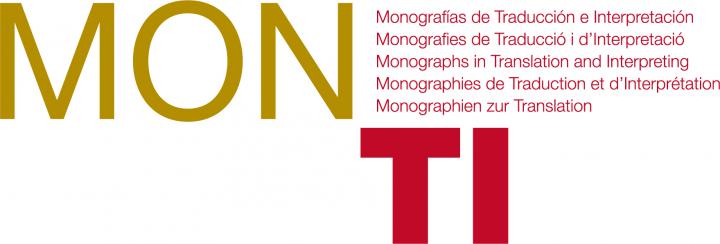Research Centres
History of Philosophy and of the Sciences in the Graeco-Arabic-Latin Tradition
This research unit of the Institute of Philosophy at the University of Würzburg promotes research on the Graeco-Arabic-Latin tradition and serves as an institutional context for studies in this area. It also offers responses to public or scholarly inquiries on the Arabic heritage in Europe.
http://www.philosophie.uni-wuerzburg.de/en/forschung/forschungsstellephilosophie_un/
Stevanovich Institute on the Formation of Knowledge
The Stevanovich Institute on the Formation of Knowledge opened in the Fall of 2015 at the University of Chicago. It was founded with the mission of uniting scholars from a variety of fields to study the process of knowledge formation and transmittal from antiquity to the present day and, in correlation, to explore how this history shapes the modern world.
https://sifk.uchicago.edu/about/
Projects
The Body in Translation – Translation, the Human body and Early Modern Demarcations of Knowledge
This project examines how different kinds of human bodies were constituted through translation in medical, ethnographic and religious discourses in the early modern global world.
The project aims to historicize present notions of translation by analysing a test case at the interstices of nature and culture. It examines how different kinds of human bodies were constituted through translation in medical, ethnographic and religious discourses in the early modern global world. It is concerned with conceptual and physical dimensions of the human body, and how these intersect with translation as a practice and a concept. Translation will be viewed as a part of historical processes – not simply a word with a history, but an epistemological and colonial practice having to do with the transfer of knowledge and power.
Digital Islamic Humanities Project
The Digital Islamic Humanities Project is a research initiative of the Middle East Studies program at Brown University.
https://islamichumanities.org/
The Knowledge Production Project (KPP)
The Knowledge Production Project (KPP) is a data search, visualization and analytics platform. Eight years in the making, KPP strives to collect, organize, and correlate knowledge produced in the English language on the Middle East since 1979.
Underlying the KPP interface are seven databases that catalog all peer-reviewed articles, books, dissertations, translated books, websites, films, documentaries, television shows, and think-tank policy papers on the Middle East. In addition to five separate, multilayered search and visualization tools that make this data available to the general public, the project is geared towards helping educators, researchers, and observers of the Middle East understand how knowledge on the Middle East is impacted by the conditions of its creation and transmission.
http://app.knowledgeproduction.com/
The translation of cultures, political thought and communication
Translation, as an interdisciplinary research theme, is at the core of this research project. The research group subscribes to a broad definition of translation as a process of selection, elaboration and appropriation of cultural theories and objects in a global context. The study of the circulation, exchange and transformation of ideas and information through space and time is the study of the routes followed by translated textual and cultural products and of the social, historical and political contexts which shape intercultural communication. The study of translations as cultural objects is carried out from a range of perspectives, linguistic, semiotic, textual, historical, political, social and communicative.
TransBank
The TransBank project aims to provide a large, open and expandable collection of translated texts and their original texts, which are to be stored in a bank – hence the name TransBank. In contrast to many other bi- or multilingual collections, the texts and translations are aligned, i.e., paired at the sentence level. The main innovative feature, however, is the ability to compile and download parallel sub-corpora on demand, tailored to the requirements regarding specific questions of translation research.
Heinz Cassirer, 1903–1979
During 2020, researchers at the University of Sheffield are digitising the works of Heinz Cassirer (1903-1979) and exploring their relevance for 21st-century interdisciplinary biblical studies.
https://sites.google.com/sheffield.ac.uk/hines-cassirer/home
Digital Collections
Digital Assets Repository (DAR)
A system developed at the Bibliotheca Alexandrina, the Library of Alexandria, to create and maintain the Library’s digital collections of Arabic digital books and manuscripts.
http://dar.bibalex.org/webpages/homepage.jsf
A digital corpus for Greco-Arabic studies
Between the 8th and 10th centuries AD, hundreds of Greek philosophical and scientific works were translated into Arabic. These translations exerted immense influence on the development of philosophy and science in the Islamic world and, through a later process of translation and transmission, in the Latin West as well.
This collection will develop a large-scale corpus of digital texts and new tools to study them.
http://alpheios.net/content/grecoarabic
Arabic and Islamic Science and Its Influence on the Western Scientific Tradition
This is a thematic selection featured in the World Digital Library, an international collaboration, led by the Library of Congress, with the support of UNESCO.
The theme illuminates the achievements of the Arab and Islamic world in four areas — mathematics, astronomy, medicine, and technology – and discusses the influence on the Western scientific tradition of Arabic and Islamic achievements in these fields.
https://www.wdl.org/en/themes/islamic-science/
Perseus Digital Library
A digital library project managed by Tufts University in the US. The project offers free access to digital collections of the three classical languages – Greek, Arabic and Latin – and a range of open source tools to run analyses and retrieve information from the collections.
Other Resources
Ten under appreciated philosophers of the Islamic World
Oxford University Press Blog timeline produced by Peter Adamson, author of the History of Philosophy series, that highlights ten under appreciated figures of the Islamic world, during and well beyond the medieval era.
http://blog.oup.com/2016/08/islamic-philosophers-timeline/


